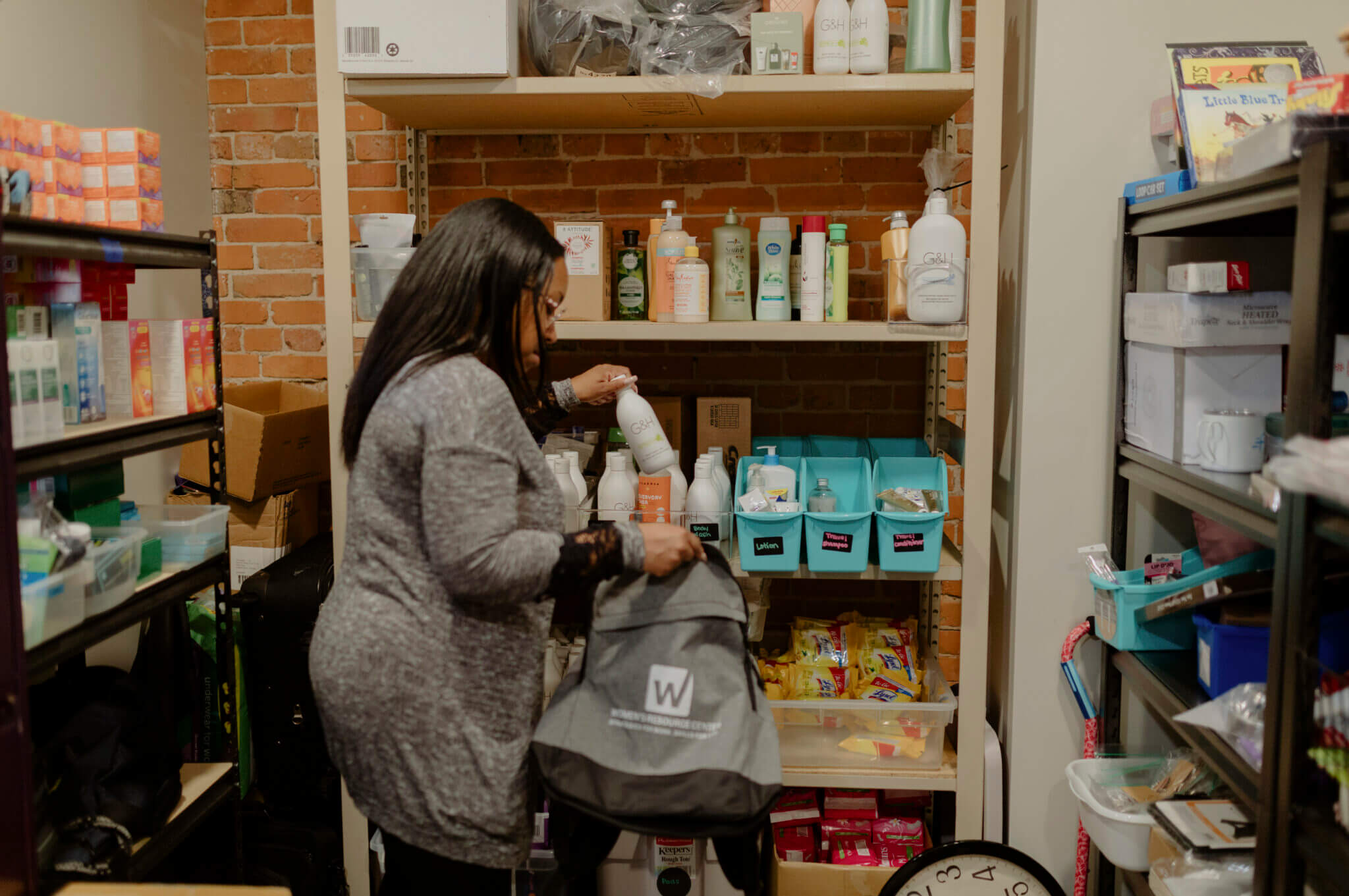
This story is featured in the Michigan Justice Fund’s 2023 Annual Report.
Throughout its history, GRWRC has been a trailblazer, introducing innovative approaches tailored to uplift disadvantaged populations and offer a second chance at life.
Most of us likely know someone who has been impacted by the criminal legal system. More than one in four Michigan residents has some type of criminal record, and the rise in the number of incarcerated women has outpaced that of any other demographic. From 1970 to 2015, the rate of women behind bars in Michigan skyrocketed by 432 percent. Particularly concerning is the fact that eight out of every ten women in jails are mothers, underscoring the profound impact of incarceration on families across the state. Reflecting on this data reveals systemic challenges that demand attention and change.
Prior to 2012, Michelle Bryk, GRWRC’s Program Director, collaborated with local entities and identified a significant gap in programming aimed at reducing recidivism for women affected by incarceration. Her work offered greater insight into the unique challenges women face upon reentry, such as barriers to housing, transportation, and job acquisition. These observations led to the acknowledgement of challenges specific to women, such as a lack of familial support and difficulties in reunifying with their children. Bryk saw a need for targeted and comprehensive support systems to address the distinct hurdles that women encounter during the reentry process.
In 2012, the GRWRC launched the New Beginnings program to interrupt cycles of incarceration for women and offer vital support for a successful reentry into society. Operating within the jails of Kent County, and, more recently, in Muskegon and Ottawa counties, New Beginnings engages women voluntarily during their incarceration period, providing a holistic support system including mentorship, life skills development, individualized employment plans, and case management.
Grounded in the EMPath model, a framework developed by Boston’s Economic Mobility Pathways organization, the program emphasizes assessments and coaching to disrupt the pipeline to poverty. The GRWRC tailors one-on-one counsel and custom treatment plans based on comprehensive assessments and individual needs. By providing resources and a supportive environment, the program creates a space for transformative change before women rejoin society, significantly improving their chances of successful reentry.
The challenges and barriers faced by incarcerated women extend beyond the Kent County region, prompting the GRWRC to recognize the vital importance of extending their reach to advocate for improved services on a broader scale. The Michigan Justice Fund’s 2021 and 2023 grants to the GRWRC facilitated the expansion of their services into the Lakeshore community, encompassing correctional facilities in Muskegon and Ottawa County. The GRWRC has successfully implemented its programming, with a continued focus on amplifying the needs and voices of women within these facilities.
Tatum Hawkins, Director of Development and Communications, emphasized the crucial role played by New Beginnings coaches in advocating for the needs of their stakeholders. “The challenges women experience in the jail space are more complex than the conviction that got them there,” Hawkins explained. “Our coaches serve as advocates for women in jails and also help the jail staff have greater awareness and understanding of the complex issues that women face.”
Notably, New Beginnings coaches recently advocated for women in Kent County jails to receive increased supplies of sanitary napkins and underwear after discovering that essential items were not readily available to them. This proactive approach exemplifies the GRWRC’s commitment to addressing the multifaceted needs of incarcerated women and enhancing the overall conditions within correctional facilities while preparing participants for life beyond those walls.
To learn more about the Grand Rapids Women’s Resource Center, CLICK HERE.
